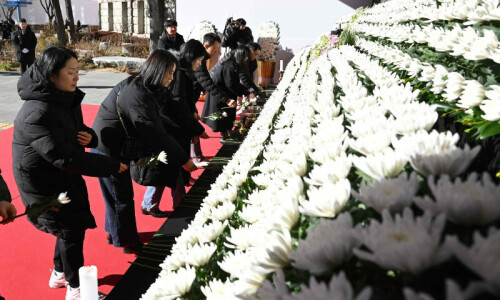SINDH Chief Minister Syed Murad Ali Shah seems finally to have woken up to one of the most pressing challenges facing the province, and the country: the abysmal state of the public education sector. Presiding over a meeting to review the overall performance of the education department on Wednesday, he observed that illiteracy was the basic problem behind all our woes. This can be considered something of an overstatement, but of two facts there can be absolutely no doubt: first, progress requires an educated and skilled workforce that must at the very least have basic literacy at its command, and second, Pakistan has over the decades experienced a steep fall in the quality and quantity of educational services it provides to the population. This can be blamed on a variety of reasons, including the low allocation of funds and a scarcity of resources, as well as a lack of commitment at the administrative level to bring about tangible improvements; the rate of population growth too has played a role. In some areas, schools are too far for children to travel to; there are schools without basic infrastructure such as toilets and drinking water facilities, as well as ‘ghost’ schools that exist only on paper or ‘non-functional’ schools where staff doesn’t bother to show up, in many cases despite continuing to draw a salary. The sins of omission and commission are many, in Sindh and the rest of the country, and the bottom line is this: neither the state nor provinces are fulfilling their constitutional obligation to have every child in school.
So the fact that the chief minister has directed the education department to ensure that the problems are fixed, be it the provision of infrastructure or curriculum reform or the availability of scholarships, must be welcomed. Yet it is hoped that the resolve is not eventually exposed as mere rhetoric. Fixing Sindh’s education woes involves a multi-pronged strategy of considerable proportions. Has Mr Shah the determination to make it happen?
Published in Dawn, March 25th, 2017








































